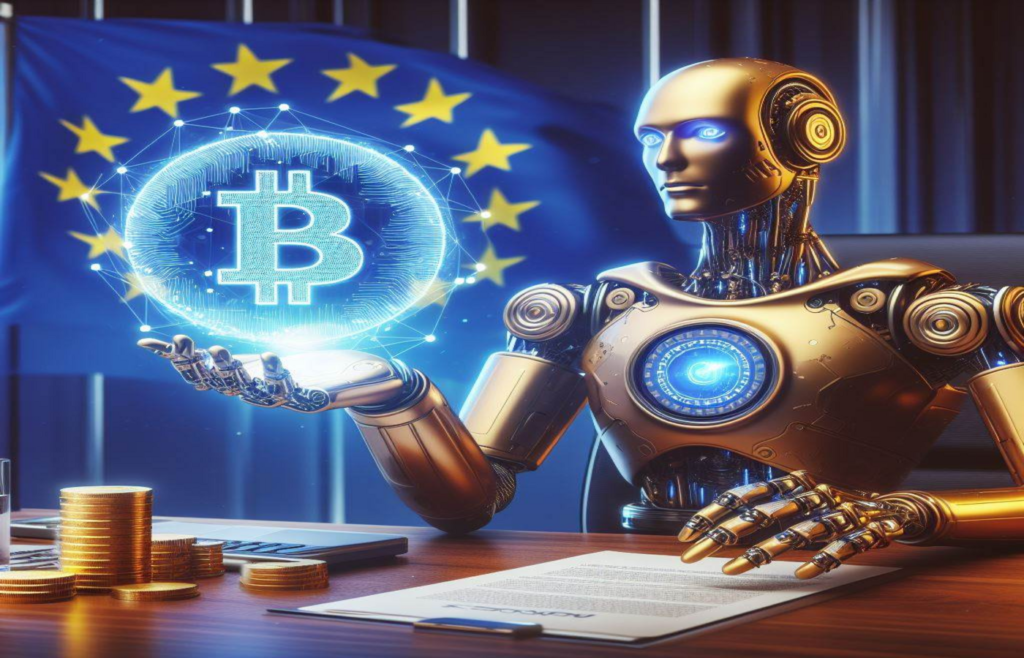Decentralized blockchain and AI networks are a new trend, and they are also a growing trend in smart contract enhancement. According to EUBOF, emerging DeFi protocols are also receiving more attention.
It has been suggested that the European Union (EU) prepare for the combination of blockchain technology with artificial intelligence (AI).
The European Commission launched the European Blockchain Observatory and Forum (EUBOF). EUBOF tracked and examined blockchain advancements throughout Europe. On May 24, they released a conclusion report.
The author of the study is the Directorate-General for Communications Networks, Content and Technology. It emphasized how well blockchain can work with other technologies. The paper also highlighted blockchain’s contribution to innovation.
The EUBOF found a significant tendency for blockchain and AI convergence. The blockchain provides a secure way to store sensitive AI data sets. EUBOF claims that this is helpful in financial services and healthcare, where data protection is essential.
Furthermore, the two technologies’ convergence may make decentralized AI networks possible
The study stated:
“This can reduce the risk of data monopolies and promote collaborative AI development.”
EUBOF also concluded that AI may enhance the usefulness of smart contracts.
The study conducted by the European Commission also recognized the decentralized finance (DeFi) ecosystem’s ongoing expansion and predicted the introduction of new protocols and cutting-edge applications.
EUBOF believes that the main factors influencing blockchain technology’s further adoption will be its innate sustainability, energy efficiency, and interoperability.
Learn more about blockchains and their practical applications by reading Cointelegraph’s introduction to crypto and artificial intelligence.
In this regard, EUBOF issued several proposals. They proposed serving as a global blockchain information center. They emphasized bolstering Europe’s interactions with different stakeholders. They also talked about problems brought on by recent technologies.
On May 24, the EU released a statement in tandem with the assessment from the EUBOF. They intend to make changes to the European High Performing Computer Joint Undertaking (EuroHPC) regulation as it currently stands. This regulation dictates the use of supercomputers for AI development.
Nine supercomputers are overseen by EuroHPC around Europe. The development of these supercomputers began at the beginning of the program. The amendment’s new AI factories will advance EuroHPC’s objectives. Wallonia’s vice president and minister of economy, research, and innovation is Willy Borsus.
He stated:
“Unity is the strength of Europe, and together we have achieved great goals. We have seen this with the development of our world-class supercomputers, and now we want to boost the outcomes of these powerful machines through trustworthy AI.”
The new rule allows hosting firms to get reimbursed by the EU for up to 50% of the costs associated with purchasing and running AI supercomputers. After five years of acceptance testing, ownership of these machines can be passed to the hosting organizations.

